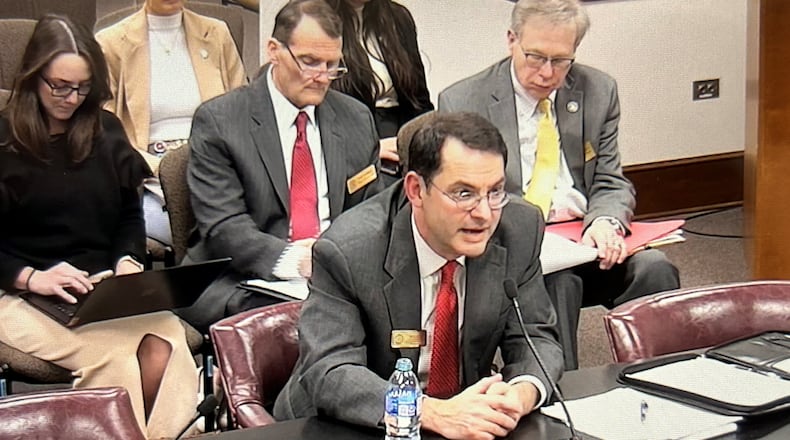The Georgia banking sector shares few of the flaws that have rattled the nation’s financial sector, one of the state’s top regulators told state senators Tuesday.
Despite high-profile concerns and urgent federal action, the crisis has been limited to a handful of institutions, said Oscar “Bo” Fears III, deputy commissioner of consumer and legal affairs at the Georgia Department of Banking and Finance.
“The state of banking in this country overall is very strong and that is true in the state of Georgia,” he said in testimony before the Senate Committee on Banking and Financial Institutions. “I am very confident in the safety and security of the banking system that we have in the state of Georgia.”
Fears came to the Senate committee as recent bank failures conjured painful memories.
Georgia suffered a devastating crisis among its community banks starting in 2008 that stemmed from the collapse of the housing market, the financial crisis and Great Recession.
In the past several weeks, the nation was thrown into another banking crisis that started with the failures of two large regional banks — Silicon Valley Bank of California and Signature Bank of New York.
The aftershocks have continued with concerns about another California regional lender, First Republic Bank, and Switzerland’s Credit Suisse, which announced this week that it will taken over by rival Swiss rival UBS.
Those headlines sparked sell-offs of bank company stock and concerns that more banks were troubled. But economists also fear that even healthy banks would retreat from lending, making it harder for companies to expand and potentially tipping the economy into a ditch.
In the aftermath of the housing market collapse, unemployment soared into double-digits. Between 2008 and 2016, 91 Georgia-based banks failed, according to a list of failed banks maintained by the Federal Deposit Insurance Corp.
Yet the causes of that crisis were far different, Fears said.
Back then, the banks’ key customers were going out of business, he said. This time, the high-profile failures have been the result of banks mismanaging the recent rise in interest rates, a social media-fueled panic and some factors that were distinctive to the failed banks.
Among the “distinguishing factors” that provide reassurance, Fears said is that Georgia banks are much more diversified.
Silicon Valley Bank was a bank to Bay Area tech companies and venture capital firms, companies hard-hit by inflation and a wobbly economy. Signature was heavily weighted to cryptocurrency, a sector besieged in recent months by failure and fraud, including FTX.
No Georgia bank has that kind of concentration among its customers, Fears said.
Georgia banks also are not holding anywhere near as a high proportion of uninsured deposits as SVB and Signature.
The FDIC’s insurance fund protects deposits up to $250,000, and there are ways to structure larger dollar amounts so that they’re covered. But the vast majority of deposits in SVB and Signature were above that amount, so rumblings of trouble spurred many depositors to pull their money because they were afraid they’d lose it.
In classic, “bank run” fashion, SVB faced a liquidity crisis as depositors pulled their funds and the bank needed to raise capital.
To reassure banking customers across the country, federal regulators moved quickly to guarantee all the deposits in the two banks. But even without that exceptional action, Georgia banks would not face that kind of panicky withdrawal because none have a high share of uninsured deposits, Fears said.
Georgia banks do not have a dangerously high investment in bonds that were purchased when interest rates were low, the way Silicon Valley Bank did. Those bonds lost value as the Federal Reserve raised rates, so when the bank needed cash and had to sell them, it took a loss and the questions about its health led to a devastating run on the bank that forced regulators to close it.
State regulators don’t see parallels here, Fears told senators. “Our banks have done a very good job of accounting for their securities risk.”
About 200 banks operate in the state, said David Oliver, a top officer with the Georgia Bankers Association, which represents the 147 of them that are based here.
While the state is home to many tech companies, no banks have built their entire portfolio from one vulnerable sector, so the factors that “cascaded” to kill Silicon Valley Bank are not in evidence, he said. “It is just a different environment here in Georgia.”
Keep Reading
The Latest
Featured



